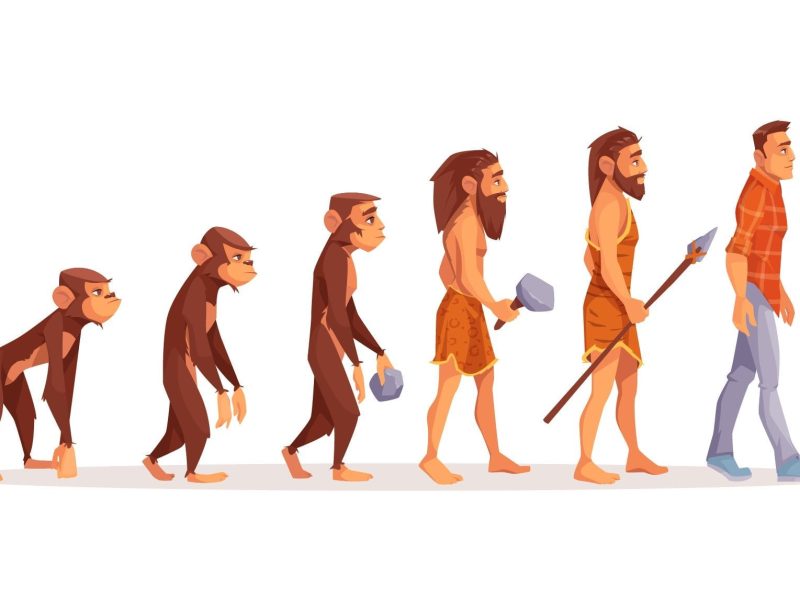Enculturation is the process through which an individual learns the culture of the society in which they live. It is the acquisition of the norms, values, and symbols of a culture. It occurs through a variety of means, including family, friends, school, church, and the media.
The process of enculturation begins at birth. Babies are born with the ability to learn, and they learn quickly. They learn the language of their parents, the customs and traditions of their family, and the values of their culture.
As children grow older, their cultural learning continues. They learn more about the culture of their society, including the norms and values that are important to that culture. They learn how to behave in social situations, and they learn the skills and knowledge that are necessary for them to participate in their culture.
The process of enculturation is important because it helps children to become members of their society. It allows them to develop a sense of identity and belonging, and it helps them to understand the norms and values of their culture. It also allows them to participate in the cultural activities of their society, and it helps them to develop the skills and knowledge that are necessary for them to function in that culture.
What is enculturation and examples?
Enculturation can be defined as the process of learning the cultural values and norms of a particular society or community. It is the process through which individuals acquire the knowledge and skills necessary to participate in the cultural life of their society.
There are a number of different factors that contribute to enculturation. One of the most important is the family unit. Parents play a crucial role in teaching their children the cultural values and norms of their society. They do this through the use of various rituals and ceremonies, as well as through more informal everyday interactions.
Schools also play an important role in enculturation. They teach children the skills necessary to participate in the cultural life of their society. This includes things like learning to read and write, as well as learning about the history and culture of their country.
The media is also a key factor in enculturation. It teaches people about the cultural values and norms of the society they live in. It also introduces them to the cultural values and norms of other societies.
Ultimately, enculturation is the process through which individuals learn to become members of their society. It is an essential part of the socialization process.
What is the meaning of enculturation?
The term enculturation refers to the process by which individuals learn the culture of the society in which they live. This can involve learning the language, customs, values, and beliefs of that society. It is a lifelong process that begins at birth and continues throughout an individual’s life.
Enculturation is important because it allows people to develop a sense of identity and belonging within their society. It also allows them to participate in the cultural life of their community and to pass on their culture to the next generation.
What is enculturation in anthropology quizlet?
Enculturation is the process of socialization that teaches individuals the culture of their society. It involves learning the language, values, norms, and behaviors of a culture.
Enculturation occurs in a number of different settings, including the family, the school, and the workplace. It can also occur through the media, religion, and other institutions.
Enculturation is a lifelong process that begins at birth and continues throughout a person’s life. It helps people to become functioning members of their society.
What is the best definition of enculturation?
The best definition of enculturation is the process through which people learn the cultural norms of their society. This process begins at birth and continues throughout one’s life. People learn the values, beliefs, and behaviors of their culture through family, friends, school, and other institutions.
What is an example of enculturation?
There is no single answer to this question as enculturation can take on many different forms, depending on the culture in question. However, in general, enculturation refers to the process by which people learn the customs, values and behaviours of their culture. This can involve a variety of different activities, from observing and copying others, to participating in rituals and ceremonies.
One of the most well-known examples of enculturation is the rite of passage undergone by young people as they enter adulthood. In many cultures, this involves a significant ritual or ceremony which marks a transition from one stage of life to another. During this process, young people are typically taught the key values and behaviours of their culture, which will help them to carry out their role within society.
Another common example of enculturation is the way in which children learn to speak the language of their parents. This process usually begins at a very young age, as children listen and imitate the words and sounds they hear around them. Over time, they gradually learn to use these words and sounds to communicate with others.
As can be seen, enculturation is a fundamental process that helps people to learn the essential aspects of their culture. It enables them to develop a sense of identity and belonging, and to participate effectively in the social life of their community.
What are the main features of enculturation?
Enculturation is the process of learning the cultural norms and values of a particular society. It involves absorbing the language, values, beliefs, and behaviors of one’s culture. The main features of enculturation are as follows:
1. Language acquisition. One of the most important aspects of enculturation is learning the language of one’s culture. This includes both the spoken language and the written language.
2. Socialization. Another important aspect of enculturation is socialization. This involves learning the norms and values of one’s culture. It includes learning how to behave in a socially appropriate way.
3. Cultural transmission. Enculturation involves the transmission of culture from one generation to the next. This includes the transmission of values, beliefs, and behaviors.
4. Acculturation. Enculturation can also involve acculturation. This involves the adoption of the culture of another society. It can involve the adoption of the language, values, beliefs, and behaviors of another culture.
What is acculturation & enculturation explain with examples?
Acculturation and enculturation are two important concepts in the study of culture. Acculturation refers to the process of adopting the cultural norms of a different group, while enculturation refers to the process of learning the cultural norms of one’s own group.
Acculturation can be a difficult process, as it often involves assimilating into a new culture while rejecting aspects of one’s own culture. This can be particularly challenging for immigrants and refugees, who may struggle to find a balance between their old and new cultures.
Enculturation, on the other hand, is the process of learning the cultural norms of one’s own group. This can be a difficult process as well, as it often involves rejecting the cultural norms of one’s family and community.
Both acculturation and enculturation are important for developing a sense of identity and belonging. They allow us to learn about different cultures and to understand the complex ways in which culture shapes our lives.
What is an example of acculturation?
The process of acculturation occurs when individuals of one culture come into contact with another culture. This can happen in a variety of ways, such as through travel, immigration, or trade. When people acculturate, they adapt to the new culture while maintaining elements of their own culture.
There is no one right way to acculturate, and the process can be difficult and challenging. It can be especially difficult for immigrants and refugees, who often face discrimination and hostility from the people in the new culture.
Despite the challenges, acculturation can also be a rewarding experience. It can allow people to learn about new cultures and to form new relationships. In the best cases, it can lead to a blend of cultures that creates something new and unique.
What is enculturation and why is it important?
Enculturation is the process by which people learn the norms, values, and behaviors of their culture. It is one of the most important aspects of socialization, and it plays a key role in shaping the individual’s identity.
There are a number of reasons why enculturation is important. One of the most important is that it allows people to fit in and feel comfortable in their culture. It also allows them to communicate effectively with others in their culture, and to understand the norms and values that are important to them.
Enculturation also helps to ensure that the culture is passed down from one generation to the next. It teaches the young people in a culture the things they need to know in order to be successful members of that culture. And it helps to ensure that the culture remains intact and does not change too much over time.
Finally, enculturation is important because it allows people to develop a sense of identity. It helps them to understand who they are and where they come from. This is an important part of human development, and it can be very beneficial for the individual.
What is the simple definition of enculturation?
The definition of enculturation is the process of learning the norms and values of one’s culture. This process usually begins in childhood and can continue throughout one’s lifetime. It involves both explicit and implicit learning, and can occur in both formal and informal settings.
What is another term for enculturation?
Enculturation is the process of socializing a person into the culture of a society. This process begins at birth and continues throughout a person’s life. It involves learning the language, customs, values, and social norms of a culture.
What is the meaning of enculturation and socialization?
Enculturation is the process of learning the customs, traditions, and values of a culture. Socialization is the process of learning the norms and expectations of a particular social group. Enculturation and socialization are important for developing a sense of identity and belonging. They help us to understand the world around us and to fit in with the people and culture we live in.
What is the full meaning of acculturation?
The full meaning of acculturation is the process of cultural change and adaptation that occurs when two or more groups of people come into contact with each other. The process can be voluntary or forced, and it can involve the exchange of ideas, goods, and services.
Acculturation can result in positive or negative changes, depending on the circumstances. In some cases, it can lead to the exchange of ideas and the growth of new cultures. In other cases, it can lead to conflict and violence.
Acculturation is a complex process that is not easily defined. It involves the assimilation of new cultures, the retention of old cultures, and the adjustment of individuals to new cultures. It can be a difficult process, but it can also be enriching and rewarding.
Which one of the following best describes enculturation?
Enculturation is the process of learning the cultural norms and values of a society. It can involve learning the language of the culture, as well as the customs and traditions. It is a gradual process that begins in childhood and continues throughout life.



